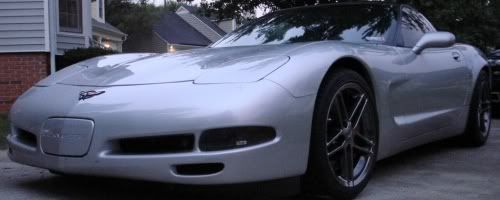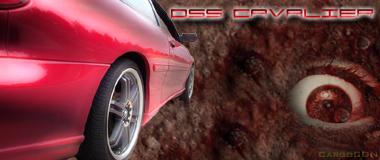http://www.autoblog.com/2008/10/15/hyundai-releases-genesis-coupe-performance-numbers/
The Genesis Coupe is being launched in South Korea this week, and we've already heard from CAR regarding their testing of the 310-hp 3.8L V6 model. While CAR achieved a fairly respectable 0-60 time of 5.9 seconds for the V6 model, Hyundai is claiming a sprint to 62 takes 6.3 seconds.
In the Korean home market, the force-fed 2.0L base model will achieve 223 hp and 220 lb-ft with premium fuel, and 210 hp with regular. U.S. customers will reportedly only receive the 210-hp version, and you'll hit that magic number at 6,000 RPM while the turbocharged nature of the 2.0L helps you hit peak torque at a low 2,000 RPM. Hyundai claims the base Coupe's 0-62 time is a rather leisurely 8.3 seconds, but we're guessing that plenty of enthusiasts will get their hands underhood in an effort to greatly boost those numbers.
With its 2820mm wheelbase (290mm longer than the Tiburon/Coupe), Genesis Coupe's cabin provides more headroom, legroom and shoulder room than its predecessor.
The 55/45 front-rear weight distribution endows Genesis Coupe with near-ideal balance for exceptional handling and more refined steering characteristics.
The advantages of a rear-wheel-drive setup include:
* Transfer of weight to the rear axle during heavy acceleration which improves traction
* Larger steering radius as there are no complicated drive shaft joints in the front wheels so that they can now be turned farther
* Better handling and braking thanks to even weight distribution so that the front and rear tires and springs are placed under more even loads, allowing for more grip during cornering and braking
It promises to be the most affordable 300-hp sport coupe on the planet!
At the heart of the story are two performance-focused engines:
The range-topping, all aluminum 310 horsepower (premium fuel), 306 horsepower (regular fuel), DOHC 3.8-liter V6 Lambda RS.
The base engine will be the 223 horsepower (premium fuel), 210 horsepower (regular fuel) 2.0-liter turbocharged Theta.
3.8L Lambda RS V-6
Based on the highly successful Lambda V-6 first introduced in 2004, the high performance RS edition (Racing Sport) of the Lambda features several key modifications which have raised power to a maximum of 303ps@6300rpm (306 horsepower for US market) and peak torque to 36.8kg/m@4700rpm enabling the Genesis Coupe to catapult from zero to 100km/h in just 6.3 seconds. The Lambda RS features all-aluminum construction, Dual CVVT (Continuously Variable Valve Timing) on both the intake and exhaust valves and a revised intake system.
Because of the sporty, low hood line of the Genesis Coupe, RS engineers were forced to redesign the intake and exhaust systems trimming 5cm from its height.
The exhaust manifold's length and cross section were optimized for reduced resistance which maximizes high speed performance and yields a pleasingly sporty exhaust note. At the same time, the diameter of the intake port in the ETC (Electronic Throttle Control) module was enlarged to improve engine breathing.
Attention was also paid to stiffening the aluminum engine block so it could endure higher stresses while a piston cooling jet was added under each cylinder to reduce thermal loading and prevent heat damage. More aggressive camshaft profiles on the Continuously Variable Valve Timing. The V-6 is mated to a six-speed ZF automatic with a 3.4 final drive ratio. A six-speed manual is also available and features a short-stroke shifter (under 41mm), optimized gear ratios and triple cone synchronizers (1st, 2nd and 3rd gears) for smoother shifts.
2.0L Theta Turbo
210HP @ 6000RPM
30.8kg-m @ 2000 RPM
0-100km/h in just 8.3 sec.
Theta employs a Dual CVVT system plus a piston oil cooling jet which is positioned under each cylinder to deliver improved cooling and better fuel efficiency.
Chassis
Dual MacPherson struts in the front improve maneuverability by reducing the offset between the wheel center and the tie rods and increasing the caster angle.
A front tower strut bar is optional. The rear rides on a five-link setup with reduced toe variation during acceleration, braking and cornering thus yielding precise maneuverability.
The Limited Slip Differential features a torque sensor for improved ride and handling under any road conditions. The rear differential transfer case sits atop a three-point mounting system (including a hydraulic bush mounting) for reduced noise and vibration
The use of crash durable adhesives in critical areas has increased dynamic torsional rigidity by 15 percent enabling better ride and handling, increased safety performance and reduced NVH. The Coupe is one of the quietest cars in its class thanks to special reinforcements and applications of various poly-urethane foam as well as sound interceptive materials that have helped eliminate both noise and vibration.
1997 Cavalier Z24
Bomz Short Ram Intake
Vibrant Cat-Back
KYB GR2 Struts
Goldline 1.75" Springs
RK Sport Upper Insert
RK Sport Lower Dogbone
Custom Tune by Shane @
innovativetuning@rogers.com
15.647 @ 88.02 MPH







